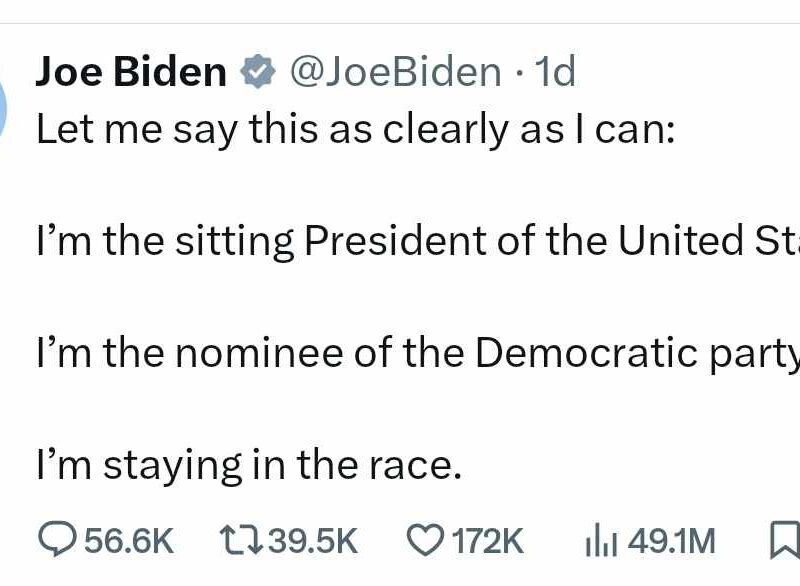2020 Vision: The Election in Historical Context
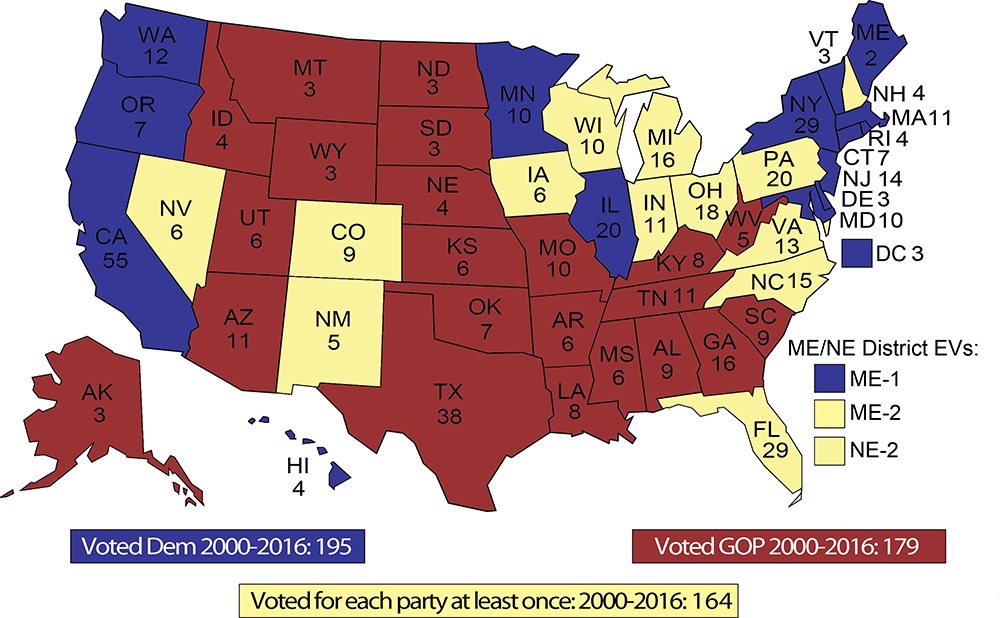
Historical Perspective
In a recent Washington Examiner article, Byron York explains the three major reasons Joe Biden should not win the presidential election given historical precedent. He notes that no one who has served decades as a Senator has ever been elected President (1). John McCain’s 21 years in the senate offer one example. It is also true that few former Vice Presidents have ever been elected President (2). Richard Nixon being a recent exception who lost the Presidential election in 1960 but later won a surprising victory in 1968. The most recent vice president elected to the presidency was George H. W. Bush who overcame a weak opponent in 1988, but failed to be reelected four years later. York also notes the 14-year rule, which observes that politicians are elected president within 14 years of their first major election as a Governor or Senator (3). Joe Biden’s 36 years in the Senate make him a stale old political operative who cannot dissociate himself from the Washington DC political elite.

These three reasons are as sound as any, but there are several more historical trends that are worthy of note. Since 1900 (over the last 120 years) only four presidents who sought reelection were defeated. In two cases the president had utterly alienated his base and thus brought on third party candidacies that scuttled their reelection prospects. Howard Taft alienated the Republican base prior to the 1912 election and found himself challenged by former President Theodore “Teddy” Roosevelt. The split in the votes allowed Democrat Woodrow Wilson to win the presidency. In 1992, the aforementioned George H. W. Bush likewise alienated Republican voters and was susceptible to the third party run of Ross Perot. Bill Clinton won the presidency as a result. In recent polls, Donald Trump holds the overwhelming support of Republicans. Any serious third party run will only hurt the Democrats and is unlikely in this election cycle.
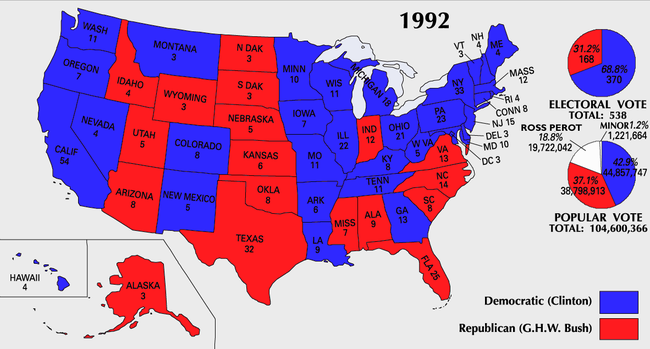
The other two cases involving incumbent presidents who were defeated at the polls were incompetent presidents who suffered economic hardships only to face very charismatic and beloved opponents with sweeping plans for economic recovery. Herbert Hoover in 1932 was a despised president whom the voters felt did not have an effective plan for economic recovery. His high taxes, contractionary monetary policy, and wage and price fixing did little to aid the economy in recovery from the Great Depression. The charismatic Franklin Delano Roosevelt, cousin of Teddy Roosevelt, offered a broad plan of economic recovery called the New Deal (borrowed from his older cousin’s Square Deal). Ultimately, Roosevelt’s policies ended up being nothing more than a doubling down on Hoover’s failed policies, but voters did not know this when they overwhelmingly sent Hoover packing in favor of Roosevelt.
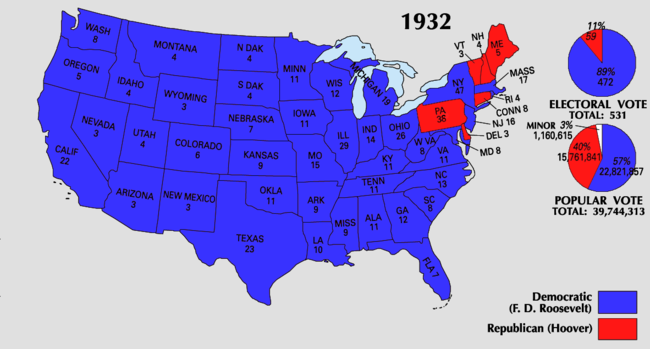
Jimmy Carter offers a second example: Carter was a weak-willed technocrat who might have been a decent, but never great, president in a less interesting time. He proved unequal to the task of addressing the end of the post-World War II economic boom, stagflation, and high unemployment. The likewise charismatic Ronald Reagan, the former Republican Governor of California, ran with a popular and populist agenda. Again, voters sent the incompetent Carter packing in favor of Reagan. It could be argued that John B. Anderson’s third party run in 1980 contributed to Carter’s defeat. Anderson was a Republican whose candidacy should have hurt Reagan more than Carter; nevertheless Reagan won a majority of the popular vote unlike Wilson and Clinton where the third party candidacy was a clear factor in the race. In 2020, polls show voters trust Trump’s economic plans over those of his opponent. Biden is as far from charismatic as any candidate can be. Most of Biden’s supporters report to pollsters that they are voting to oust Trump, not because they support Biden.
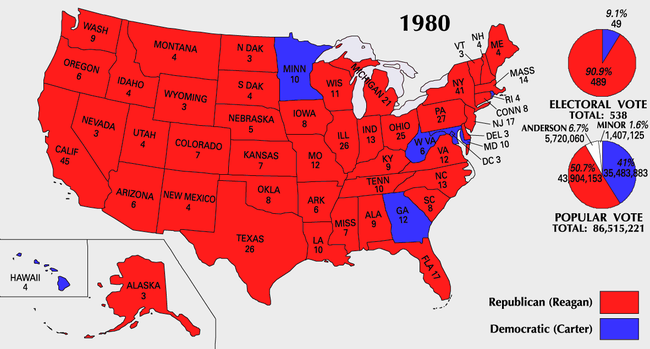
Joe Biden’s vice presidential nominee, Kamala Harris, never even surpassed 7% support in polls in her home state of California during the primary and she dropped out before any votes had been cast due to a lack of interest. She will do little to assist Biden. This will also be the first election in history wherein a presidential candidate’s mental fitness is a serious factor. Joe Biden has difficulty speaking, controlling his temper, and remaining coherent even in friendly interviews with the press. He often seems to forget where he is, to whom he is speaking, and for what office he is running. Polls show a majority of Americans are uncertain whether he will be able to serve out his first term, which might ostensibly be his only. Many people expect he will be removed from office for mental incompetence under the 25th Amendment at most two years into his term (which would allow his vice president to succeed him and seek two more terms as president for a possible total of 10 years in office). All of that assumes he will not suffer a stroke or debilitating health condition between now and the election.
The Optimism Factor
The most serious problem for the Democrats is the best predictor of American election results: optimism. Voters prefer candidates with a positive disposition who advance popular reforms. The hateful negativity of the Democrats these last several years will hamper Biden’s chances no matter how hard he tries to be positive. Their proposed agenda is so unpopular and out of touch from “Defund the Police” to “Medicare for All.” These are non-starters with the voting majority who continue to want law and order especially in the wake of the recent riots. The Democrats also do not seem to be seeking the votes of large swathes of the American electorate. They are eager to call white people racist, to promote higher taxes that will turn off business owners, the job-killing Green New Deal is the bane of the working class. The argument from the Democrats seems to be that we must vote for Biden to get rid of Trump; those who don’t want to vote for them are insulted as racists or some other pejorative.

President Trump, meanwhile, offers a message of hope and a record to back it up. During his first three years there was more economic growth than in the entire eight years of the Obama Administration; and most of the Obama “growth” was in government, not the private sector.
President Trump tells voters they can be proud of their country. America is not perfect, nor has it ever been, but we aspire to improve our country. He offers hope for economic growth and prosperity. Rather than insult voters, President Trump offers them an agenda in line with their desires. Throughout American history, this approach has always been the winning ticket. Whether it was William McKinley’s message of high wages, prosperity, and fiscal sanity against William Jennings Bryan’s rants against the gold standard in 1896, or Thomas Jefferson’s message of greater state’s rights and decentralization that carried the 1800 election in the wake of abuses of the Alien & Sedition Acts of the Adams Administration; the voters prefer optimism over negativity. When trying to sell someone on a given agenda it is always preferable to compliment them, not to insult them.
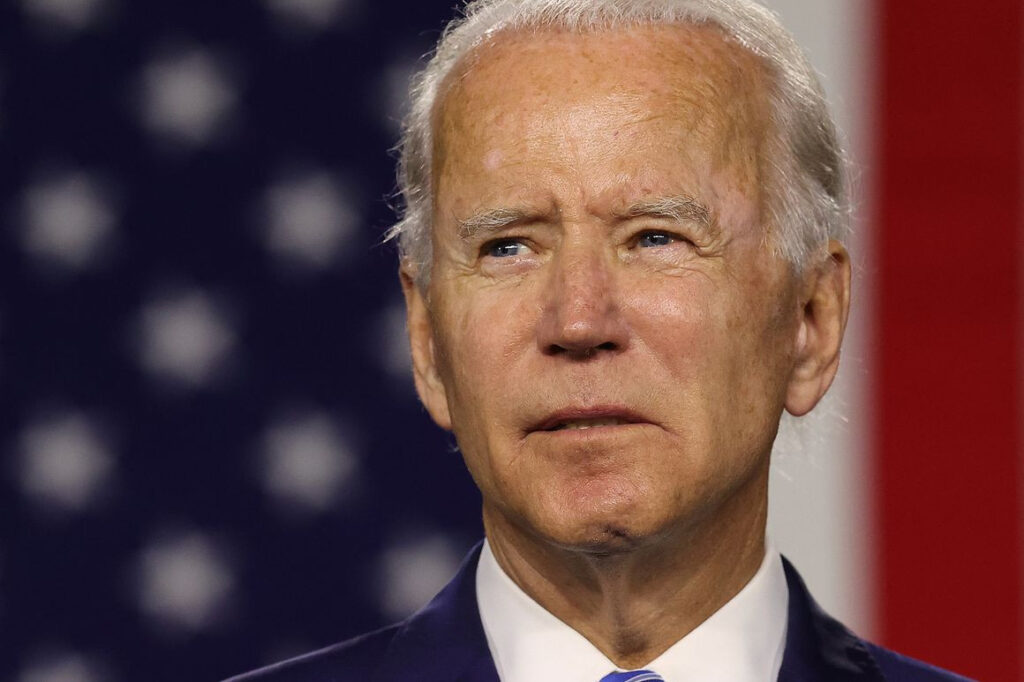
The Wuhan Virus Factor
The recent Wuhan Virus crisis is something unprecedented and could play a role in the election, but in what way? Voters don’t seem to blame President Trump for the virus, why should they? All the restrictions, mask mandates, and closures have been ordered by governors, not by the President. He has done everything to ensure there were enough ventilators, masks, and tests available. An incredible government mobilization and crisis response have been taken up by the Administration with unprecedented results. With death rates falling and a growing number of Americans tired of hearing about it, this issue is likely to play a much smaller role than we might otherwise think. The economy is recovering slowly and there is growing optimism about the future. That is to the President’s benefit.
None of that looks good for the Dems this year. If somehow Biden won, it would be entirely unprecedented and historic. It would go against every known trend in American politics and thus presents a significantly uphill battle. Nevertheless, Americans must be on their guard. Efforts are afoot to finagle the election rules and open the election to the prospect of massive fraud. In a fair election, however, history shows this should be Donald Trump’s election lose.




